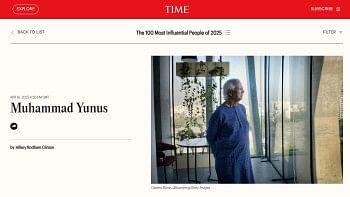Edible oil exporters' tricky way to make money
When the country was facing an acute dearth of edible oil supply last year, two business groups exported over 20,000 tonnes of edible oil to India at rates below those of local and international markets to get tax benefits on importing from traders there.
Three separate investigations have found that these traders--United Edible Oils Ltd and Bay Fishing Co Ltd--were involved in under-invoicing in order to help their Indian partners get tax benefit.
A member of an investigation team at the Export Promotion Bureau said they have found that these traders also receive similar tax facility from Indian traders while importing.
"The business houses might also have involvement in money laundering under the guise of exporting to India," the official said preferring anonymity.
The traders have, however, claimed that they exported oil to India to keep alive the business relationship with the neighbouring country and maintain the rules of agreement with the buyers there.
But, the intelligence agencies smelled a rat in the export process and three intelligence agencies conducted separate investigations.
The Central Intelligence Cell, an intelligence wing of the National Board of Revenue, discovered that the two traders exported around 1,290 tonnes of soya bean oil and 1,700 tonnes of palm oil through the Akhaura customs station alone.
The exporters sold soya bean oil at an average price of Tk 39.20 per kilogram during January-August last year. They raised the rate to Tk 66.92 per kg in November.
The average production costs of the two oil products were Tk 43.09 per kg during January-August and Tk 56 in November 2007.
The commerce ministry and the Export Promotion Bureau also conducted separate investigations and submitted their reports to the National Coordination Committee on checking corruption and serious crimes on January 8.
"We have submitted our investigation report on the export of edible oil, but we are not authorised to speak anything about it," said Nur-Un-Nabi Talukder, joint secretary for the commerce ministry and the head of a probe body.
NBR Chairman Muhammad Abdul Mazid told The Daily Star that some traders misinterpret the harmonised system of code and take advantage.
"The NBR is working on the issue and thinking of formulating a long-term policy so that businessmen cannot misuse the complexity of product specification," Mazid said.
Asked for his comments, Edible Oil Refiners and Importers' Association President MA Rouf Chowdhury said, "The mater is really suspicious and if any member of the association is found involved in exporting edible oil to India at cheaper rates, the association will take action against it.
"There was no reason to export edible oil at that time as the country was struggling to fulfil its internal requirement. The issue should be investigated properly and if anything is found wrong, the traders involved should be punished," he added.
Talking with The Daily Star, the managing directors of United Edible Oils and Bay Fishing's parent organisation TK Group, Mostafa Kamal and Abu Kalam, said despite "some supply dearth" in the country, they exported edible oil to some north-eastern Indian states to grab the potential market there and keep it under their control.
"We can export products to Assam by lorry which is a major advantage for the business," Kamal added.
The country's annual requirement of edible oil is around 14 lakh tonnes and 90 percent of this is imported from Malaysia, Indonesia, Argentina and Brazil.
Bangladesh also has 50 edible oil refineries that import bulk edible oil and distribute it across the country after refining.

 For all latest news, follow The Daily Star's Google News channel.
For all latest news, follow The Daily Star's Google News channel. 



Comments